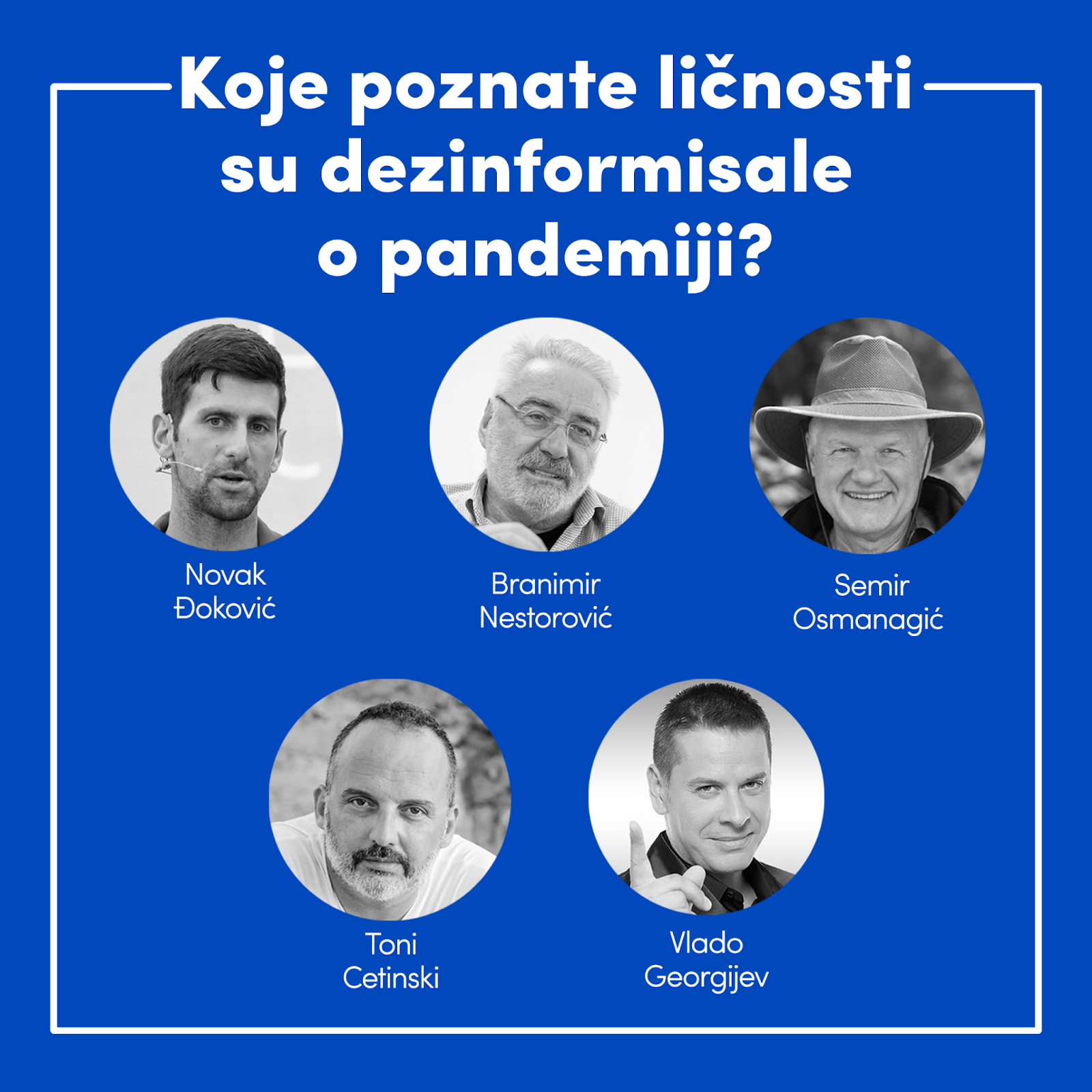Disinformation During Covid-19 Pandemic: Regional research
Along with a health threat to the billions of people around the world, the Covid-19 pandemic brought with it an unprecedented spread of false and manipulative content, especially on social networks. This flood of disinformation in both traditional and social media, also known as the “infodemic”, has drowned our region as well.
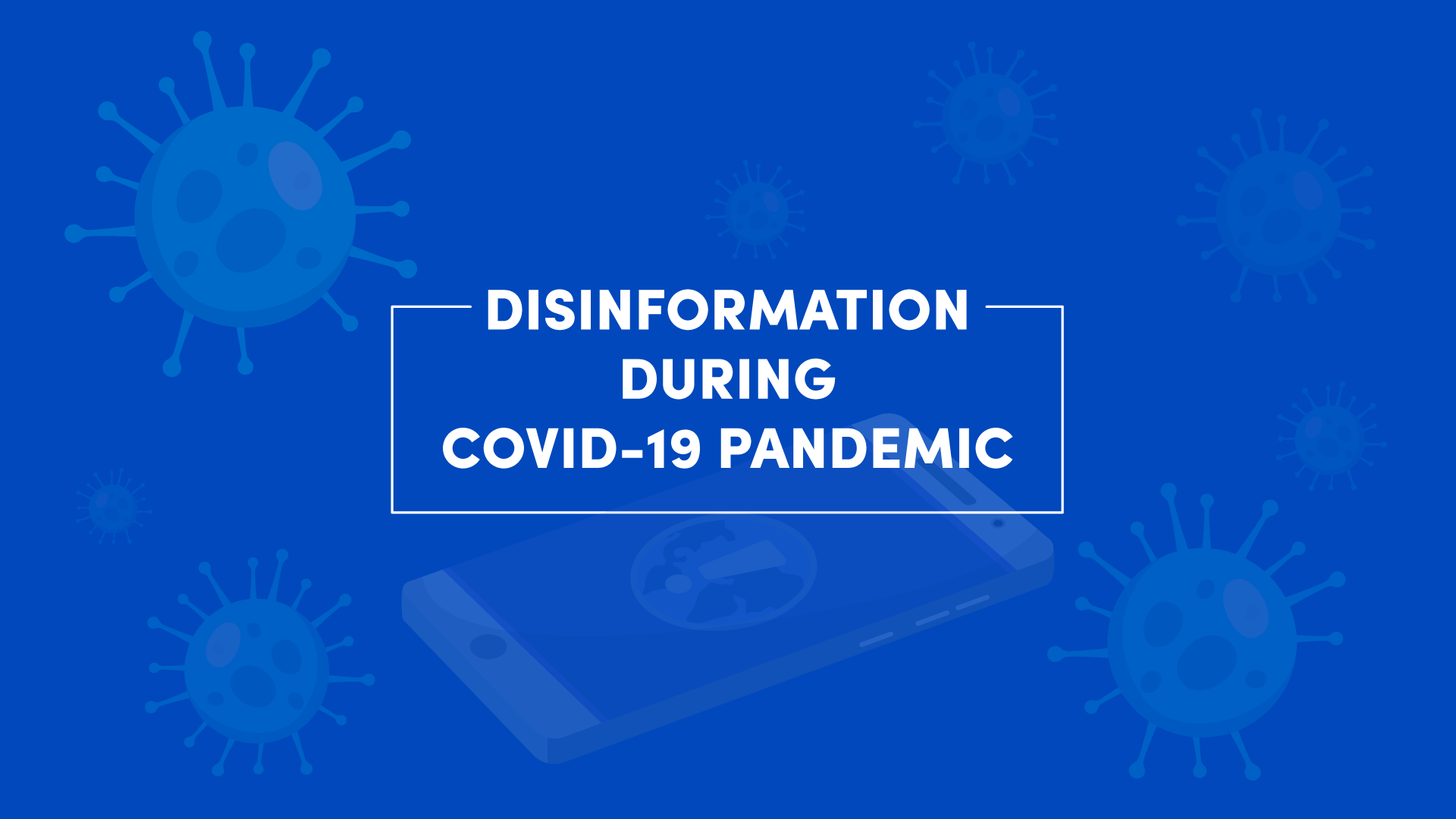
Members of See Check, a regional network of fact-checkers from Southeast Europe, have relentlessly monitored and debunked pandemic-related disinformation around the clock. Raskrinkavanje from Bosnia and Herzegovina, Raskrikavanje and Fake News tragačfrom Serbia, Raskrinkavanje from Montenegro, Faktograf from Croatia and F2N2 from North Macedonia and Razkrinkavanje from Slovenia have evaluated thousands of pieces of disinformation since the beginning of pandemic.
Hundreds of the fact-checks they published served as a starting point for research that was undertaken as a part of the “Freedom Fights Fake” project, led by Friedrich Naumann Foundation for Freedom.
Disinformation During Covid-19 Pandemic is based on a data set produced from January to October 2020 by 6 fact-checking platforms in five countries in the region: BiH, Croatia, Montenegro, North Macedonia and Serbia. During this period, regional fact-checkers from the SEE Check network published 762 analyses and rated 4,654 articles or social media posts containing false or misleading claims about the pandemic.
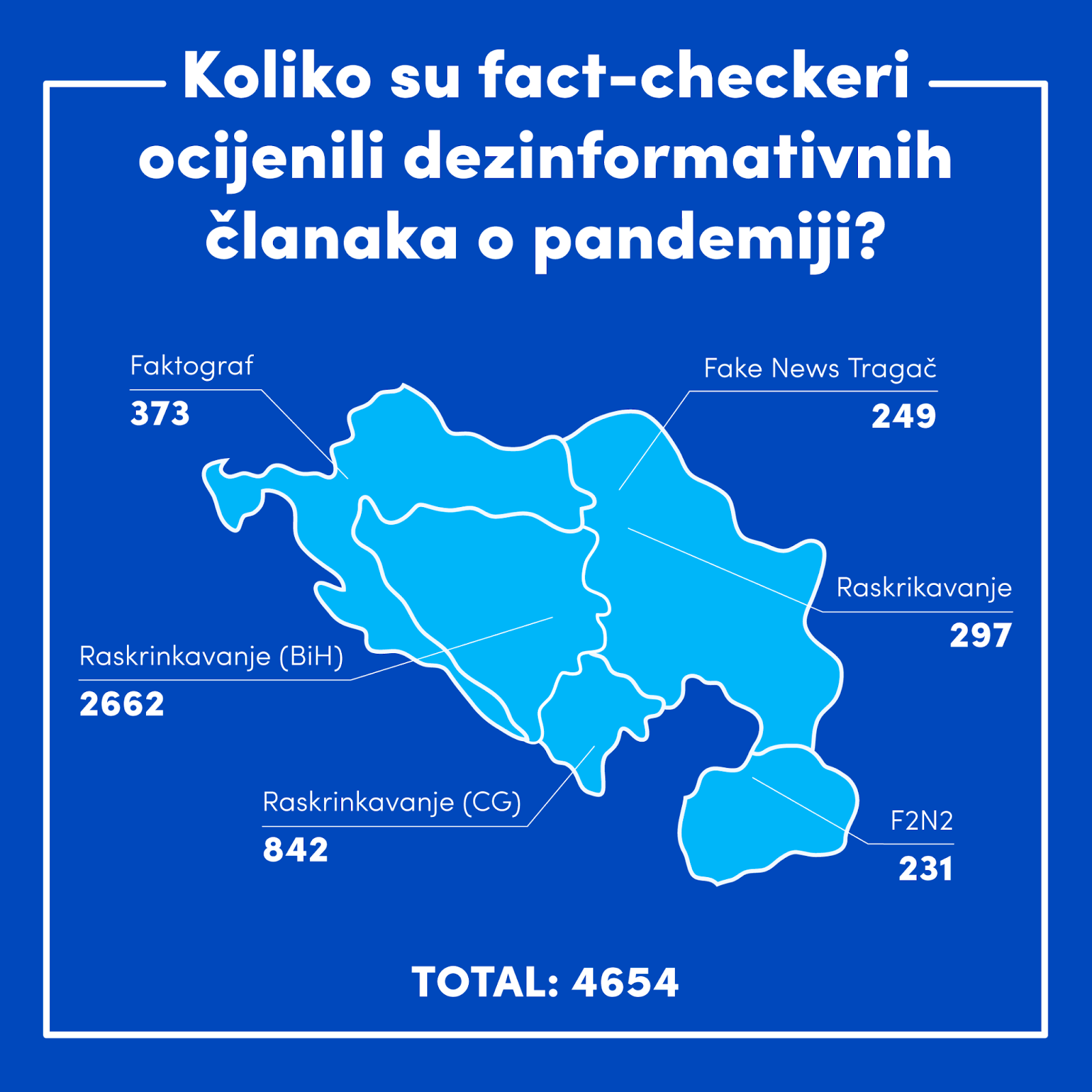
Using a methodology which combines fact-checking and data analysis, this research aimed to probe the scale and scope of disinformation about the Covid-19 pandemic in each of these countries and in the whole region.
We looked into various influences that shaped the infodemic in the region, including the anti-vaccination movement, so called “corona influencers”, or populist medical doctors and QAnon followers.
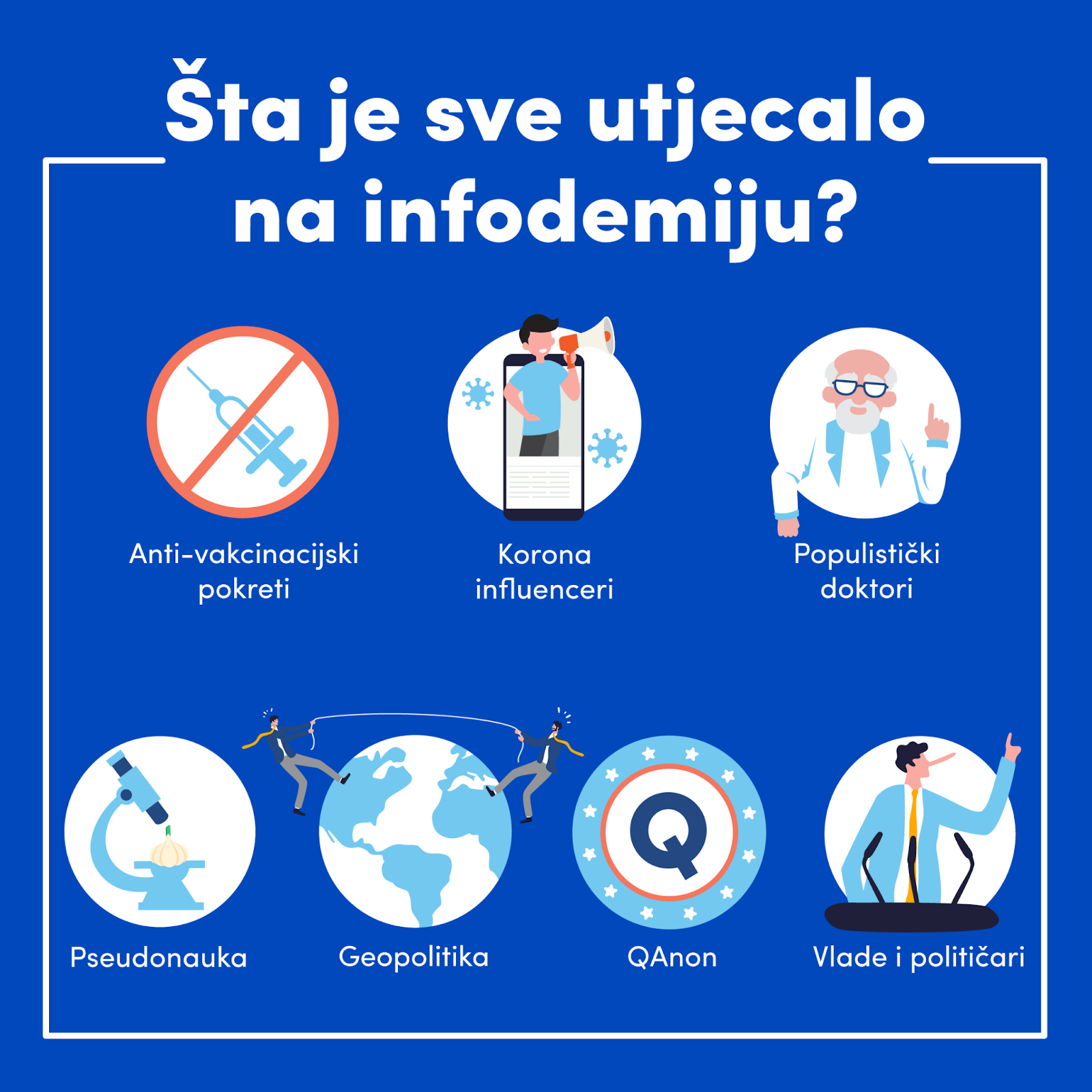
High public interest in pandemic related topics, low levels of media and information literacy, as well as copy-paste journalism, have all enabled inaccurate content to spread rapidly – often reaching its peak before the fact-checking platforms were able to debunk them.
In fact, this research shows that one piece of false information about the pandemic was transmitted by an average of six outlets (6.10), which constitutes a considerable viral potential. These falsehoods were also shared extensively on social networks, particularly on Facebook – a platform that was the number one source of fact-checked content.
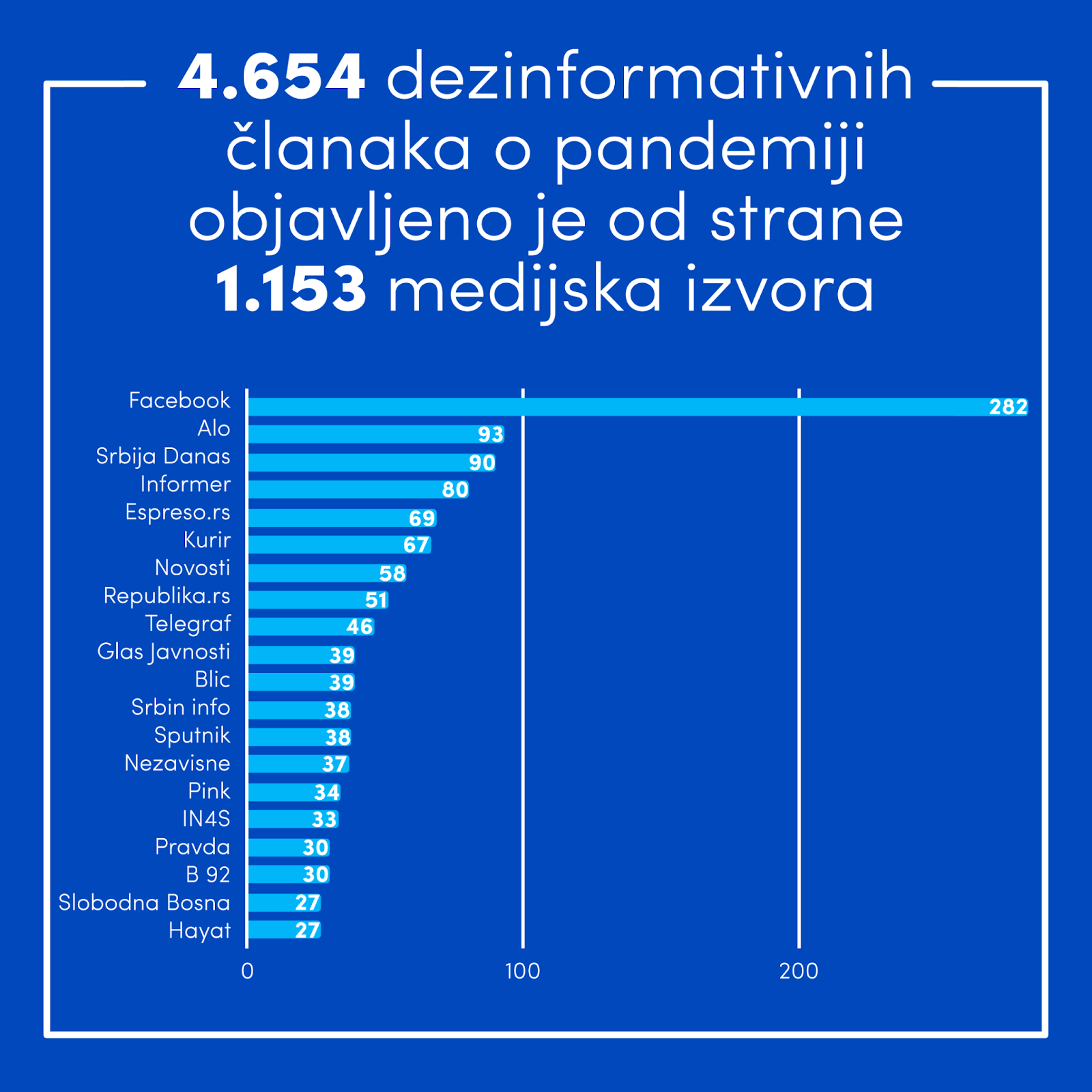
Overall, 1,153 different media outlets in the region were rated for publishing false information about the pandemic over the course of nine months, averaging 4.07 articles per individual media outlet in the sample.
While posts on Facebook were the single largest source of disinformation as a “group”, the individual media outlet which received the highest number of ratings was Alo, a tabloid from Serbia. As seen above, among the 20 media outlets which individually published the largest number of disinformation about the pandemic, 15 are located in Serbia.
The most represented false claims about the pandemic revolve around vaccine safety and efficacy, false cures for the disease, origin of the virus and false numbers of Covid-19 cases and death rates.
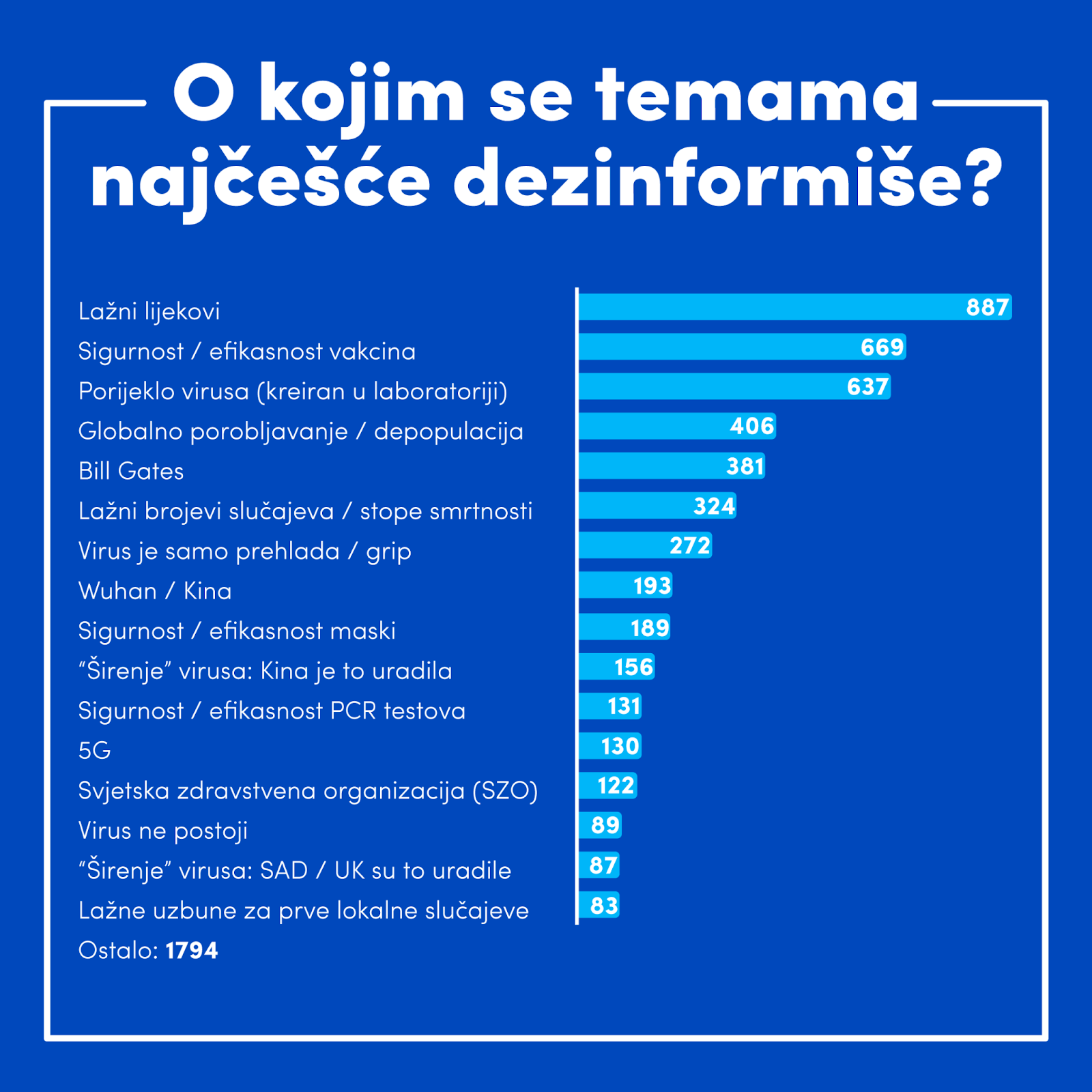
In addition to the topics, we also explored who the “Corona-influencers” were – in other words, who was most engaged in creating false viral and/or media content about the pandemic. There was a considerable number of previously anonymous or semi-anonymous individuals that contributed to the general pool of conspiracy theories and/or pseudoscience. The visibility and the attention that some of them gained was a noticable phenomena for the fact-checking community in the SEE region. Another distinct group involves influencers who were active before the pandemic, but jumped on the infodemic train to increase their popularity.
Finally, several public figures contributed to spread of false information about the virus, the diseas, or other pandemic-related topics. This included some internationally famous people, like tennis player from Serbia, Novak Đoković, or pop singers Toni Cetinski and Vlado Georgiev. In this group, however, there were “celebrities” with actual medical background like a doctor from Serbia Branimir Nestorović – one of the prominent figures in the region who built their TV fame on peddling dangerous anti-scientific claims and narratives.
